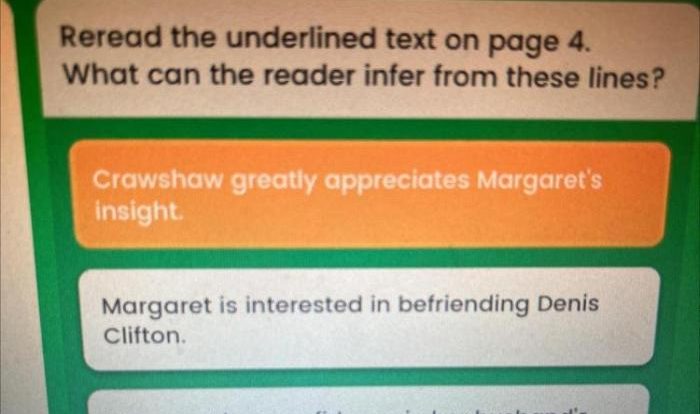Paradox and dream john steinbeck – Embark on a literary journey into the depths of paradox and dreams in John Steinbeck’s “The Grapes of Wrath.” This captivating tale weaves a complex tapestry of hope and despair, strength and vulnerability, where dreams collide with reality, challenging perceptions and shaping destinies.
Delve into the novel’s rich themes, where paradoxes abound, creating a palpable tension and ambiguity. Dreams, both ethereal and profound, serve as portals to escape, revelation, and foreshadowing, guiding characters through their tumultuous journeys.
Paradox in “The Grapes of Wrath”
John Steinbeck’s “The Grapes of Wrath” is a novel that explores the paradoxes of the human condition. The novel’s themes of hope and despair, strength and weakness, and the struggle for survival are all explored through the experiences of the Joad family as they travel from Oklahoma to California in search of a better life.
Paradox of Hope and Despair
The Joads are a family of farmers who are forced to leave their home when their land is taken away from them. They set out on a journey to California, where they hope to find work and a new home.
However, their journey is filled with setbacks and disappointments. They face poverty, hunger, and discrimination. Despite these challenges, the Joads never give up hope. They continue to believe that they will find a better life in California. This paradox of hope and despair is one of the central themes of the novel.
Paradox of Strength and Weakness
The Joads are a strong family, but they are also vulnerable. They are able to withstand the hardships of their journey, but they are also easily hurt by the cruelty of the world. This paradox of strength and weakness is another central theme of the novel.
Paradox of the Struggle for Survival
The Joads’ journey is a struggle for survival. They are fighting against poverty, hunger, and discrimination. However, their struggle is also a fight for dignity. They are determined to keep their family together and to find a better life. This paradox of the struggle for survival is the third central theme of the novel.
Dreams in “The Grapes of Wrath”
In John Steinbeck’s “The Grapes of Wrath,” dreams play a crucial role in shaping the characters’ lives and the novel’s themes. They serve as a means of escape from the harsh realities of the Great Depression, provide revelations about the characters’ inner selves, and foreshadow future events.
Dreams as a Means of Escape
For the Joads, dreams offer a momentary respite from their arduous journey and the oppressive circumstances they face. Tom Joad, in particular, finds solace in his dreams of a future where he is free and independent. These dreams provide him with a sense of hope and determination, sustaining him through the darkest times.
Dreams as Revelation
Dreams also serve as a means of revealing the characters’ innermost thoughts and desires. Ma Joad, the matriarch of the family, experiences a recurring dream in which her dead husband appears to her. Through this dream, she gains insight into her own strength and resilience, realizing that she is the true backbone of the family.
Dreams as Foreshadowing
Moreover, dreams often foreshadow significant events in the novel. For instance, Tom’s dream of a green and prosperous future is juxtaposed with the harsh realities of the Dust Bowl, foreshadowing the challenges and hardships that lie ahead for the Joads.
Recurring Dream Motifs and Symbols
Certain dream motifs and symbols recur throughout the novel, carrying significant symbolic meaning. The image of water, for example, represents hope and renewal, while the image of fire symbolizes destruction and upheaval. These symbols contribute to the novel’s rich tapestry of imagery, enhancing its emotional impact.
Interplay of Paradox and Dreams: Paradox And Dream John Steinbeck
Paradox and dreams are intricately intertwined in “The Grapes of Wrath.” Dreams challenge the characters’ perceptions of reality, forcing them to confront the paradoxes inherent in their existence. Steinbeck skillfully employs dreams to delve into the complexities of the human condition, revealing the ways in which our hopes, fears, and desires shape our understanding of the world.
Paradoxical Nature of Dreams
Dreams in “The Grapes of Wrath” often defy rational explanation, presenting characters with paradoxical situations and images. For instance, in the opening chapter, Tom Joad dreams of a verdant field filled with ripe peaches, a stark contrast to the barren landscape of the Dust Bowl that he inhabits.
This dream embodies the paradox of hope amidst despair, reminding Tom of the beauty and abundance that once defined his life and contrasting it with the harsh realities he now faces.
Dreams as Mirrors of Reality
While dreams can challenge our understanding of reality, they can also reflect it in unexpected ways. Steinbeck uses dreams to expose the hidden truths and emotions that characters may not consciously acknowledge. For example, Ma Joad’s dream of her husband’s ghost symbolizes her longing for stability and security in the midst of chaos.
Her dream confronts her with the reality of her husband’s absence, forcing her to confront her own fears and insecurities.
Dreams as Explorations of the Human Psyche, Paradox and dream john steinbeck
Through dreams, Steinbeck explores the complexities of the human psyche, revealing the inner workings of characters’ minds. In his portrayal of Rose of Sharon’s dreams, he delves into the themes of motherhood and sacrifice. Rose of Sharon’s dream of a starving baby bird highlights her own maternal instincts and her willingness to sacrifice her own well-being for the sake of her unborn child.
Dreams thus become a window into the subconscious, allowing Steinbeck to explore the hidden motivations and desires that drive his characters.
Influence of Paradox and Dreams on Character Development
Paradox and dreams play pivotal roles in shaping the development of characters in “The Grapes of Wrath.” These elements challenge the characters’ perspectives, propel their journeys of self-discovery, and ultimately influence their actions and destinies.
Paradox and Perspective
The Joad family faces numerous paradoxes throughout their journey. They seek a promised land in California, only to find harsh conditions and exploitation. They value family and community, yet they are forced to navigate a world that often divides and isolates them.
These paradoxes challenge the Joads’ beliefs and force them to confront the complexities of the world around them.
Dreams and Self-Discovery
Dreams provide a refuge for the Joads amidst their hardships. They offer a glimpse of hope and a sense of escape from their harsh reality. Through dreams, characters like Tom and Ma Joad confront their inner demons, explore their desires, and ultimately discover their true selves.
Paradox and Action
The paradoxes faced by the Joads lead to both positive and negative consequences. On one hand, they drive the family to persevere despite adversity. On the other hand, they can also lead to disillusionment and despair. Dreams, too, have a profound impact on the characters’ actions.
They inspire hope, motivate determination, and shape the choices the Joads make as they navigate their uncertain future.
FAQ
What is the significance of paradox in “The Grapes of Wrath”?
Paradox serves as a powerful tool in Steinbeck’s novel, highlighting the inherent contradictions and complexities of life. It creates a sense of tension and ambiguity, forcing characters and readers alike to grapple with the multifaceted nature of existence.
How do dreams function in the narrative of “The Grapes of Wrath”?
Dreams play a pivotal role in the novel, providing characters with moments of escape, revelation, and foreshadowing. They serve as a window into the characters’ subconscious desires and fears, shaping their perspectives and guiding their actions.
In what ways do paradox and dreams intersect in the novel?
Paradox and dreams are inextricably linked in “The Grapes of Wrath.” Dreams challenge the characters’ perceptions of reality, forcing them to confront the paradoxes inherent in life. Steinbeck uses dreams to explore the complexities of human nature, highlighting the tension between hope and despair, strength and vulnerability.

